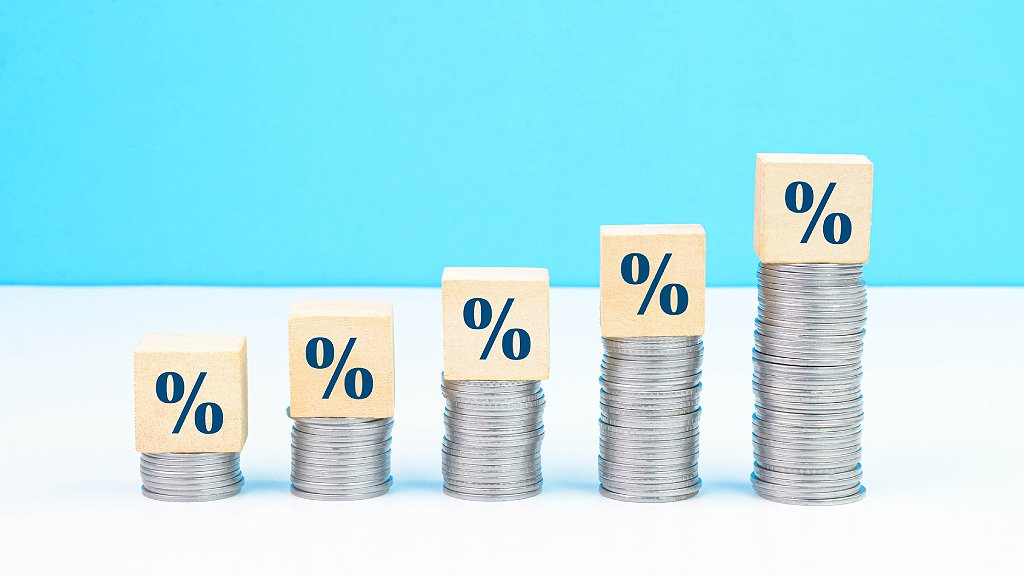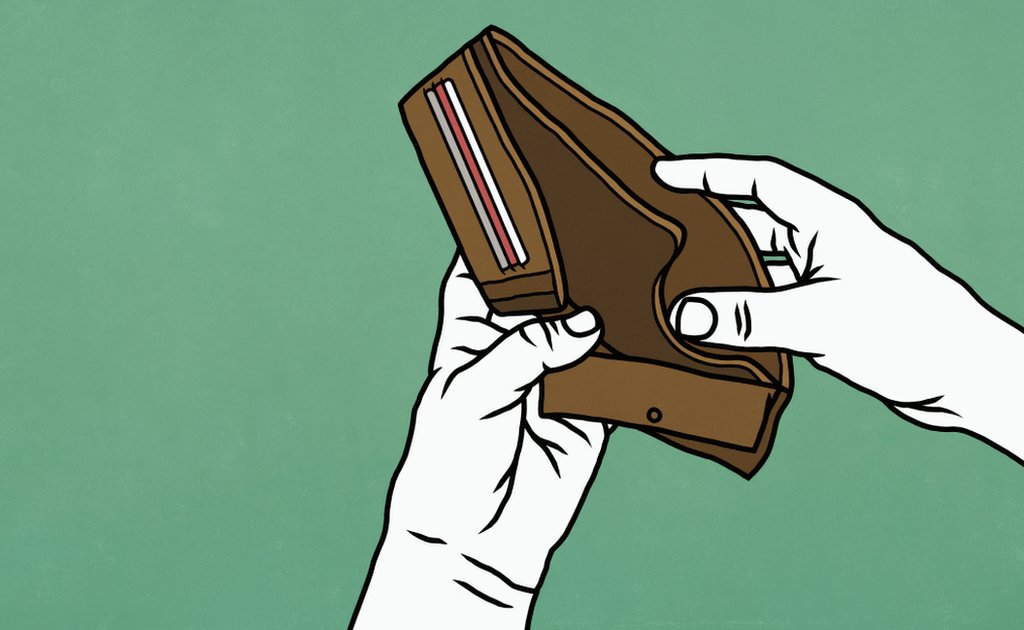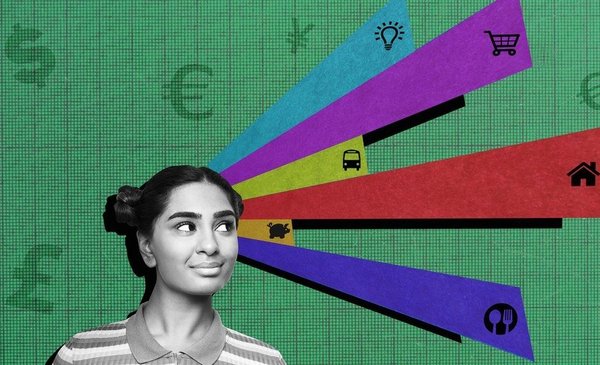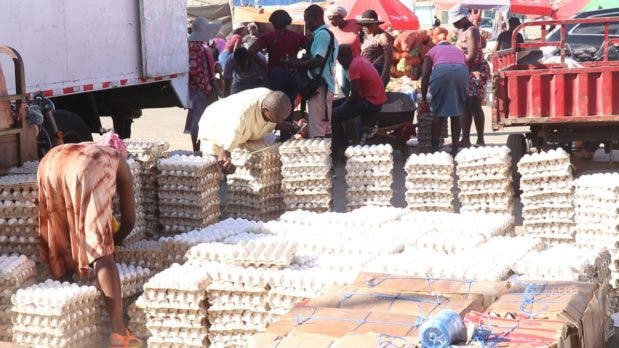The economy has dominated the headlines in recent months, but how many of the terms we see in the news do you really understand?
Sometimes it pays to go back to basics to understand what we hear on a daily basis, so here’s a quick guide to five economic terms that affect everything from your weekly market to mortgage rates.
1. Inflation
Inflation is a general rise in prices, affecting everything from pasta to iPhones.
Each country has its way of calculating it.
In the UK, for example, the Office for National Statistics is in charge, and it does this through some impressive numerical calculations: a network of 300 people visit 20,000 shops, in 141 locations, to amass 180,000 price quotes for 730 goods! and services!
What they get is the average of all those price increases, and that’s known as the ‘inflation rate’.
It affects what Richard Davis, professor of economics at the University of Bristol, describes as: “a kind of imaginary person who is the average of all of us”.
Inflation can be caused by rising costs.
An example of cost-driven inflation occurred during the pandemic when shuttered businesses decided to renovate. The demand for wood created shortages, and suppliers increased prices.
Inflation can also be caused by a surplus of money in the economy.
When there is more money in the economy, the value of money can decrease, which means that people generally have to pay more for the same goods and services.
Experts agree that a low and stable inflation rate is good for the economy.
Although it may seem counterintuitive to want prices to rise, most economists agree in which the opposite is much worse.
If prices appear to be falling, people are less likely to spend money and then everyone from retailers to car manufacturers would start to lose money, which would spread throughout the economy and weaken it.
2. Interest rates (and how they affect your mortgage)
Interest rates are the price of borrowing money over time, and it’s how banks get their money.
“They collect money from us as depositors and then lend it out in the form of credit cards, mortgages and other types of loans,” Davis explains.
Banks charge interest to protect themselves from risk. They use the interest they collect from people to offset the losses they face when others cannot pay their loans due to health problems or unemployment, for example.

Central banks are the institutions that in most countries act as the monetary authority and when their interest rates increase, it means that it is more expensive for the main banks to store their money or borrow, so their costs increase.
They pass that cost on to their customers and increase the mortgage rates they are charged. If interest rates go down, mortgage rates should also go down.
Fundamentally, interest rates are a tool with which central banks can influence in inflation.
Higher interest rates mean that people prioritize saving and stop spending their money. This reduces demand in stores, thus lowering inflation.
Lower interest rates encourage people to spend their money, so this is meant to help the economy grow.
3. Economic growth and GDP
Gross Domestic Product (GDP) has been the standard measure of economic growth for almost 100 years.
GDP is measured in three ways: the total value of all goods and services produced in the economy, national spending (domestic, business, and government), and income generated (household wages, business profits, and tax collection). of the government).

Doing more things essentially means more growth in the economy.
However, as Dimitri Zenghelis, co-founder of The Wealth Economy Project at Cambridge University, explains, if that growth comes as a result of unsustainable practices, that’s generally not considered a good thing.
Examples of these are the unsustainable use of natural resources, an increase in production due to war or reconstruction from natural disasters.
Governments can encourage growth through tax changes, although this is difficult to gauge.
Reducing corporate tax, for example, can attract investment and mean the creation of jobs, the construction of new factories that provide employment and activity in other sectors.
But if tax cuts are financed by reduced government spending on things like infrastructure, hospitals, and schools, that can make a country less attractive for companies to invest in and hurt growth in the long run, as they need healthy and well educated people.
GDP should not be the only measure to check if a nation is doing well or notsince it does not show the whole picture.
Instead, a panel of measures that includes things like happiness, health, and inequality should be taken into account.
4. Bonds and shares
A bond is actually a way for a government or company to borrow some money.
If, for example, a government needs to borrow money to build a new train line, they can ask us if we would lend them some money, promising to pay it back, even with some interest, as a token of appreciation.

Governments of stable countries are generally considered a safe place to keep money. That’s because they last, unlike people who tend to die after 80 years and run out of time to pay off their debts.
Plus, they can raise taxes, which means if they’re having a hard time paying down their debt, they can find more money.
That is why pension funds like to buy government bonds, as they need a safe place to keep their money, since they have to pay it off many years later.
Companies can sell bonds, but they can also sell stocks.
The concept of shares was utifirst used by the cWhere from Cumberland in 1600.
He wanted to raise money for a dangerous and risky expedition to the Spice Islands (Moluccan Islands, Indonesia). A total of 218 people contributed and were rewarded with a share of the proceeds when he returned home with a shipload of spices to sell.
Today, those people would have a share in what became the East India Company and would still receive a share of the profits when the products were sold.
More and more people began asking for money in this way and eventually the Stock Market was born, where stocks are traded whose value depends entirely on a collection of optimistic and pessimistic views of how they will fare.
If you don’t have shares and wonder how a rise or fall in the stock market affects you, the main link is your pension fundwhich can be affected if there is a large movement up or down.
5. Recessions
“The technical definition of a recession,” explains Richard Davis, “is when an economy goes through two consecutive quarters of negative growth.”
That’s one way of saying the economy has been contracting.

A recession can be caused by something that makes us poorer or makes us feel poorer and prevents us from spending money.
That, in turn, means that other people have fewer tickets and less to spend. The process continues to affect the economy, until it causes it to enter a recession.
There are two main types of recession.
The first is when an external shock hits the economy, causing the value of assets, from the stock market to the value of people’s homes, to stagnate or decline.
When these assets are worth less, people see their overall wealth decrease and tend to reduce their spending.
That, in turn, leads to a decrease in other people’s income (and in some cases unemployment) and also to a decrease in their expenses.
A recession can also be caused by a long period in which the wage level rises at a slower rate than the price level.
In those cases, the purchasing power of workers decreases and the amount people spend generally decreases as well.
Governments can play a role in preventing recessions.
Ideally, Davis explains, “when households are feeling the pinch, you want the government to go out and spend and cut taxes.”
If something hits the economy and people are suddenly out of work and able to spend less, ideally the government would start spending more, building new schools and hospitals, and creating more jobs for people.
This, in theory, would cause people to spend and the economy to grow again.
But it’s a juggling make it sustainable.
* If you want to listen to the episodes full length of the BBC series “Understand: The Economy”, Click here.
Remember that you can receive notifications from BBC Mundo. Download the new version of our app and activate them so you don’t miss out on our best content.
















